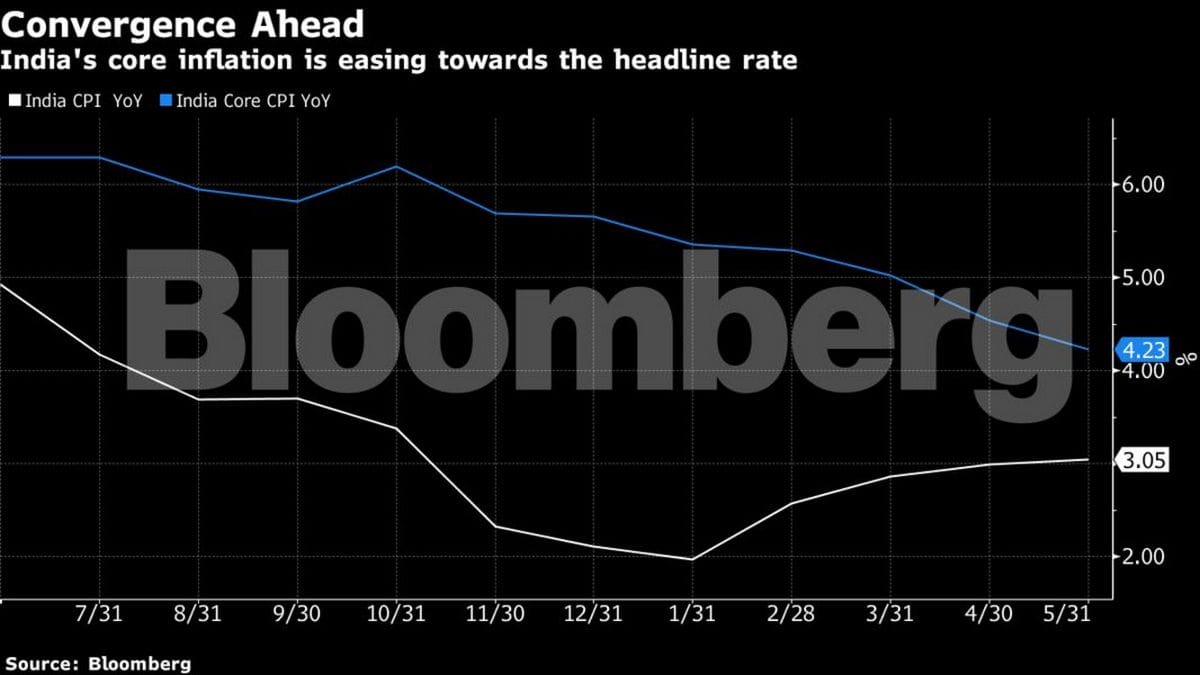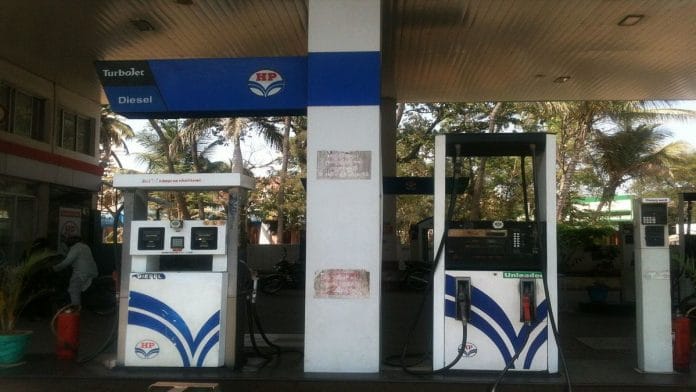Mumbai: India’s decision to raise duties on gasoline and diesel is unlikely to threaten the inflation outlook, keeping alive expectations of more interest rate cuts from the central bank.
Finance Minister Nirmala Sitharaman’s decision Friday to increase federal taxes on transport fuels by 2 rupees a liter will have an impact of less than 10 basis points on headline inflation, according to Teresa John, an economist at Nirmal Bang Equities Pvt. The second-round effects could push up the inflation rate by slightly more than 10 basis points as higher transport costs spread to other parts of the economy.
“The decision doesn’t really move the needle much for inflation,” said John, who sees the first-round impact at 6-7 basis points. “Average headline inflation would be around 3.8-3.9% for FY20.”
That projection is below the Reserve Bank of India’s medium-term inflation goal of 4%. The central bank forecasts consumer-price growth in a range of 3-3.1% in the first half of the fiscal year through September, and 3.4-3.7% in the second half.
The RBI has already lowered its benchmark interest rate three times this year and the markets expect more easing in the coming months as policy makers seek to bolster economic growth that cooled to a five-year low of 5.8% in the March quarter.

Data on Friday will probably show inflation inched up to 3.2% in June from a year earlier, up from 3.05% in May, according to a Bloomberg News survey. The rise will in part be due to higher food costs, though underlying price pressures are likely to be subdued, highlighting a slowdown in demand in the economy.
Also read: Inflation accelerates to six-month high after 2.92% rise in April
What Bloomberg Economists Say
“Given the sharp drop in global crude oil prices, the excise duty and cess on gasoline and diesel is unlikely to change our inflation projections. Still, the direct impact could be estimated at about 10-12bps on headline inflation. We don’t expect any indirect impact as input costs are broadly declining in the economy.”
— Abhishek Gupta, economist at Bloomberg Economics
Brent oil has fallen 17% in the past year because of oversupply and fears of shrinking global demand amid trade wars, forcing producers to extend output reductions to at least March. – Bloomberg
Also read: Rising inflation unlikely to worry RBI too much







Thoughtless and unprofessional cut in interest rates by a spineless RBI affects retired persons like me who solely depend upon the monthly interest we get our of life long savings. RBI and its masters are obedient servants of vested interests and money bags and at their diktat they will wipe out in course of time the entire interest on savings. They lend money to business tycoons knowing full well that they will not come back and to compensate their loss, fleece hapless middle class in many forms. If you get a cheque book, we have to pay, if we receive SMS, we have to pay, if we transfer money, we have to pay, if we do not keep minimum balance, we have to pay. This is one country, we pay tax when we earn money and we pay tax when we spend money. Taxes that are levied are obnoxious and unrealistic. For example, hearing aid is used by persons who have suffered hearing loss. They are physically handicapped. 28% tax is levied on the battery of hearing aid. Government must help those who suffer disability. But here people with disability are targeted and punished. Purananuru example must be followed in letter and spirit.
A K PATTABIRAMAN CHENNAI